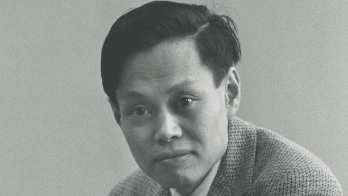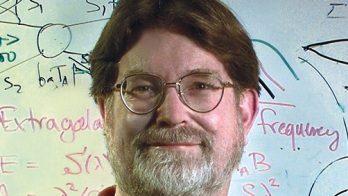Hackathons can kick-start your career, says hacker and entrepreneur Jiannan Zhang.

The World Wide Web, AI and quantum computing – what do these technologies have in common? They all started out as “hacks”, says Jiannan Zhang, founder of the open-source community platform DoraHacks. “When the Web was invented at CERN, it demonstrated that in order to fundamentally change how people live and work, you have to think of new ways to use existing technology,” says Zhang. “Progress cannot be made if you always start from scratch. That’s what hackathons are for.”
Ten years ago, Zhang helped organise the first CERN Webfest, a hackathon that explores creative uses of technology for science and society. Webfest helped Zhang develop his coding skills and knowledge of physics by applying it to something beyond his own discipline. He also made long-lasting connections with teammates, who were from different academic backgrounds and all over the world. After participating in more hackathons, Zhang’s growing “hacker spirit” inspired him to start his own company. In 2024 Zhang returned to Webfest not as a participant, but as the CEO of DoraHacks.
Hackathons are social coding events often spanning multiple days. They are inclusive and open – no academic institution or corporate backing is required – making them accessible to a diverse range of talented individuals. Participants work in teams, pooling their skills to tackle technical problems through software, hardware or a business plan for a new product. Physicists, computer scientists, engineers and entrepreneurs all bring their strengths to the table. Young scientists can pursue work that may not fit within typical research structures, develop their skills, and build portfolios and professional networks.
“If you’re really passionate about something, you should be able to jump on a project and work on it,” says Zhang. “You shouldn’t need to be associated with a university or have a PhD to pursue it.”
For early-career researchers, hackathons offer more than just technical challenges. They provide an alternative entry point into research and industry, bridging the gap between academia and real-world applications. University-run hackathons often attract corporate sponsors, giving them the budget to rent out stadiums with hundreds, sometimes thousands, of attendees.
“These large-scale hackathons really capture the attention of headhunters and mentors from industry,” explains Zhang. “They see the events as a recruitment pool. It can be a really effective way to advance careers and speak to representatives of big companies, as well as enhancing your coding skills.”
In the 2010s, weekend hackathons served as Zhang’s stepping stone into entrepreneurship. “I used to sit in the computer-science common room and work on my hacks. That’s how I met most of my friends,” recalled Zhang. “But later I realised that to build something great, I had to effectively organise people and capital. So I started to skip my computer-science classes and sneak into the business classrooms.” Zhang would hide in the back row of the business lectures, plotting his plan towards entrepreneurship. He networked with peers to evaluate different business models each day. “It was fun to combine our knowledge of engineering and business theory,” he added. “It made the journey a lot less stressful.”
But the transition from science to entrepreneurship was hard. “At the start you must learn and do everything yourself. The good thing is you’re exposed to lots of new skills and new people, but you also have to force yourself to do things you’re not usually good at.”
This is a dilemma many entrepreneurs face: whether to learn new skills from scratch, or to find business partners and delegate tasks. But finding trustworthy business partners is not always easy, and making the wrong decision can hinder the start up’s progress. That’s why planning the company’s vision and mission from the start is so important.
“The solution is actually pretty straight forward,” says Zhang. “You need to spend more time completing the important milestones yourself, to ensure you have a feasible product. Once you make the business plan and vision clear, you get support from everywhere.”
Decentralised community governance
Rather than hackathon participants competing for a week before abandoning their code, Zhang started DoraHacks to give teams from all over the world a chance to turn their ideas into fully developed products. “I want hackathons to be more than a recruitment tool,” he explains. “They should foster open-source development and decentralised community governance. Today, a hacker from Tanzania can collaborate virtually with a team in the US, and teams gain support to develop real products. This helps make tech fields much more diverse and accessible.”
Zhang’s company enables this by reducing logistical costs for organisers and providing funding mechanisms for participants, making hackathons accessible to aspiring researchers beyond academic institutions. As the community expands, new doors open for young scientists at the start of their careers.
“The business model is changing,” says Zhang. Hackathons are becoming fundamental to emerging technologies, particularly in areas like quantum computing, blockchain and AI, which often start out open source. “There will be a major shift in the process of product creation. Instead of building products in isolation, new technologies rely on platforms and infrastructure where hackers can contribute.”
Today, hackathons aren’t just about coding or networking – they’re about pushing the boundaries of what’s possible, creating meaningful solutions and launching new career paths. They act as incubators for ideas with lasting impact. Zhang wants to help these ideas become reality. “The future of innovation is collaborative and open source,” he says. “The old world relies on corporations building moats around closed-source technology, which is inefficient and inaccessible. The new world is centred around open platform technology, where people can build on top of old projects. This collaborative spirit is what makes the hacker movement so important.”







